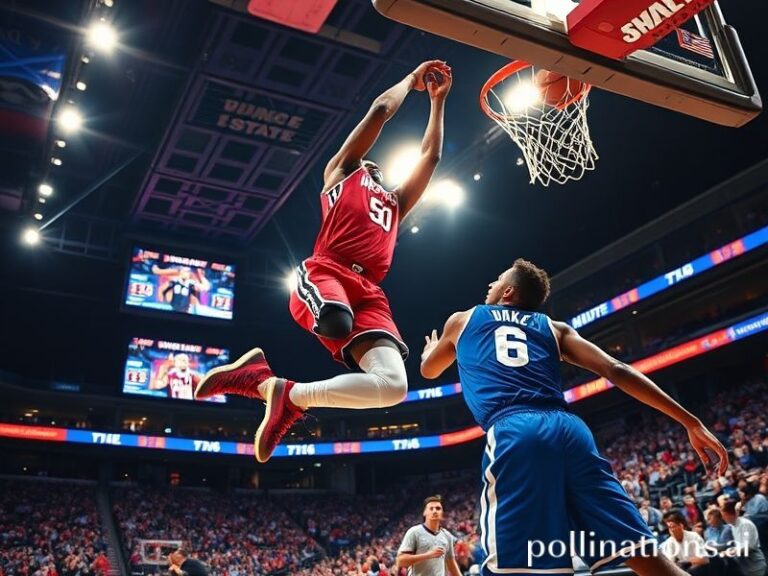Noah Lyles: The 19.52-Second Diplomat Selling Time to a World That’s Running Out
Noah Lyles, the 27-year-old American who insists on calling himself “World Champion” even when the world is busy arguing about tariffs and TikTok bans, just reminded the planet that 200 meters can still be measured in something older than cryptocurrency: actual seconds. At the World Athletics Championships in Budapest last August, Lyles scorched the curve in 19.52, collected his third global 200 m gold, and then—because subtlety is for marathoners—struck the pose of a comic-book demigod. Cue fireworks, cue camera drones, cue the collective shrug of roughly eight billion non-track fans wondering why this matters when their rent is due.
From an international vantage point—say, a rooftop bar in Istanbul where the barman swears the ice cubes are “locally sourced”—Lyles is more than a man who runs half the length of a Manhattan block faster than most of us locate our passports. He is a walking referendum on the American soft-power playbook: take something niche, wrap it in sequined confidence, and export it until even Singaporean taxi drivers know your name. The trick works because track and field, unlike the NFL or the World Series, is democratic misery. Every country owns a stopwatch; every country can fantasize that its next kid with good femur genetics is 20.9 seconds away from a Wheaties box. Lyles, who speaks fluent Internet and sprinkles his interviews with anime references, is the perfectly meme-able envoy for that fantasy.
Global implications? Start with the obvious: shoe wars. When Lyles laces his custom, neon-splattered Adidas spikes, stock prices twitch in Herzogenaurach, Bavaria, where boardrooms have long since calculated that every hundredth of a second he slices off equals roughly 14 million extra pairs sold in Southeast Asia. Nike, meanwhile, retaliates by signing the next Jamaican prodigy and shipping containers full of hope to Lagos and Lima. The Cold War had missiles; the Sneaker War has millimeters of ultra-light foam. Somewhere, a Vietnamese factory worker making $4.50 a day glances at the logo on the heel and mutters, “World champion, huh,” with the weary irony reserved for people stitching miracles they’ll never afford.
Then there’s the geopolitical aftershock of Lyles’s unfiltered mouth. After winning in Budapest he declared, “We are not the NBA—this is the real world championship.” Europeans chortled into their espresso; Americans fresh off yet another “World Series” involving only North American zip codes nodded solemnly. The comment ricocheted across group chats from Accra to Auckland, instantly weaponized by everyone who has ever rolled their eyes at U.S. exceptionalism. In that sense, Lyles accidentally became a populist spokesman for the 96 percent of humanity that does not hold an American passport but still has to watch our sitcoms.
Of course, none of this absolves the absurdity of the sport itself, a spectacle where the margin between glory and anonymity is thinner than the paper in a Russian draft notice. One tweaked hamstring and Lyles morphs from global icon to trivia-night answer. Athletes know this; so do the sponsors who insure their quadriceps like Italian art. The existential joke is that we keep pretending any of it is permanent. Countries will rise, currencies will collapse, and yet every four years we gather to measure who can bleed lactic acid most elegantly around an oval. Lyles is simply the latest protagonist in a play where the script demands he pretend the stakes are life and death, even as the audience checks the price of Bitcoin mid-race.
Yet for all the cynicism, there is something stubbornly uplifting about watching a Black kid from Alexandria, Virginia, outrun the lingering stench of slavery, segregation, and the current governor’s book bans—if only for 19-point-something seconds. The world leans in because, unlike trade deficits or submarine cables, the stopwatch is incorruptible. It does not care about your GDP, your nuclear stockpile, or whether your national anthem slaps. It just says: faster.
So when Noah Lyles grins into the camera, gold medal swinging like an expensive fidget spinner, remember that he is peddling the oldest international currency there is—time, measured in heartbeats and broadcast rights. And for a planet that’s running late on climate deadlines, debt ceilings, and basic human decency, watching someone actually beat the clock feels almost like hope. Almost.







